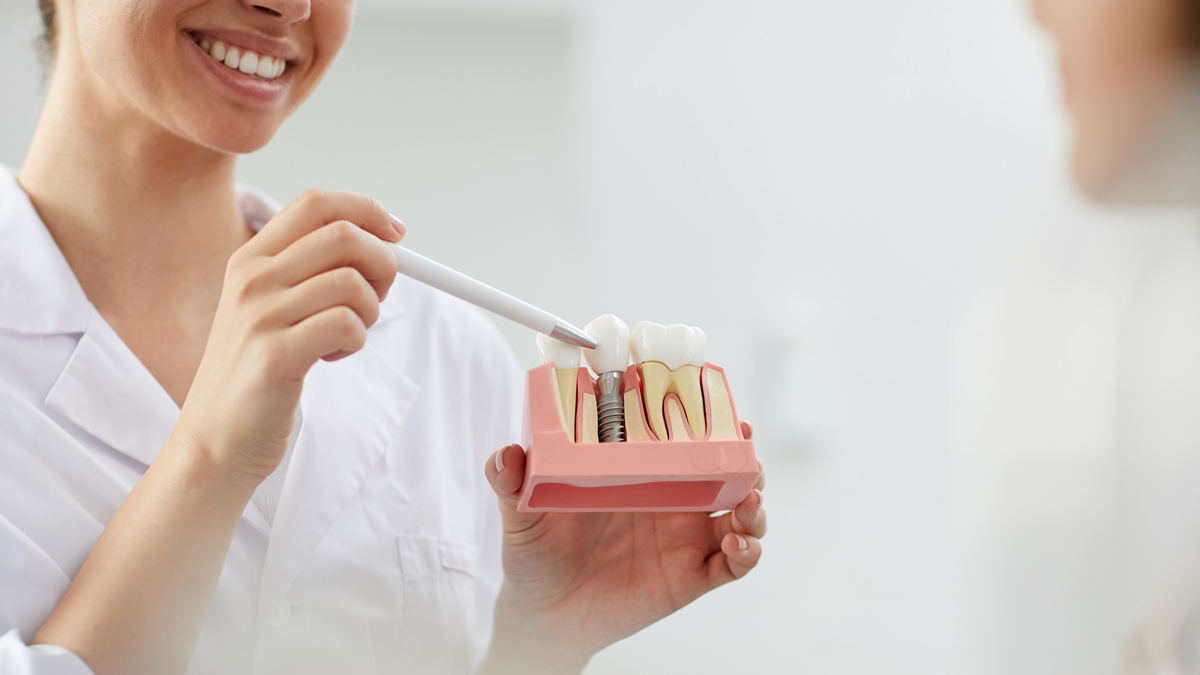Is one of your teeth missing? Do not let this missing tooth lower your self-esteem. Instead, replace it with an artificial tooth that looks, feels, and functions like a real tooth. However, ensure that the new tooth is held firmly in place.
Artificial teeth are held in place by dental implants. These implants are surgically placed inside a jawbone and have a connector at their end for holding the artificial teeth. When put in place, the implant will not affect the functioning of the nearby teeth or the growth of your jawbone. Don’t worry, professional dentists will ensure you get peace of mind when you get Dental Implants in Colorado Springs.
You are probably asking yourself many questions about these implants. This is good because you need to know a lot about them before going for dental implant surgery. Below is a discussion of some of the top 6 dental implant facts.
Many Dental Implants Are Made From Titanium
The next time you go for a tooth replacement, your dentist will likely install a titanium dental implant into your jaw bone. This is because titanium dental implants are readily available and affordable. They can also bond well with human being’s jawbones, holding them firmly in place and making the jawbone stronger.
Titanium dental implants have two pieces. One of the pieces will be connected to your artificial tooth, while the other will go inside your jawbone. This is why you can get a customized titanium implant even when suffering from a low jawbone deficiency.
Dental Implants Can Last For A Long Time
Unlike artificial teeth, your dental implant screws can last for a lifetime when you properly care for them. For instance, you need to brush and floss them regularly. Also, go for checkups after every six months. In some cases, you may need to replace the dental implant after some time, especially if it is positioned near your mouth’s rear.
Dental Cavities Do Not Affect Dental Implants
Human teeth are often affected by cavities due to bacteria, resulting from frequent consumption of sugary things. However, this is not the case with dental implants. They are not affected by these bacteria due to their metallic nature. However, you need to keep your teeth clean since these bacteria can affect the teeth beside the implant.
Dental Implants Are Put In Place Through Dental Implant Surgery
A dentist will perform a dental implant surgery when putting dental implants in place. The procedure is simple, and you will not get admitted to a hospital when it is being performed. Before the procedure, a dentist will check your dental system and your medical history. If your jawbone is thin, they will perform jawbone grafting to ensure that the implant is firmly held in place.
In rare cases, the dental implant may fail, especially if it is not properly put in place. This is why you need to look for a good dental implant center. So, if you live in Denver, the folks at NuviaSmiles.com suggest consulting with the dental implant experts around the area and explore your options. However, be ready to describe your dental condition before the procedure.
There Are Two Types Of Dental Implants
Two types of dental implants exist and your jawbone condition is what will determine the type that a dentist will use. For instance, if you have a healthy jawbone, your dentist will use endosteal implants. They are placed directly into the jawbone and left to heal. When healed, the dentist will put posts on them and attach dental crowns.
If you do not have a healthy jawbone, your dentist will use subperiosteal implants. They are made up of metal frames, which your dentist will place on the available jawbone just below your gum tissues. After they heal, the dentist will put posts and attach artificial teeth to them.
Dental Implants Rarely Affect The Teeth Beside Them
Maybe you are afraid that a dental implant will affect the teeth beside it. They rarely do so since the gum firmly holds them. In rare cases, the implants can move, disturbing other teeth, and you can use dentures instead. Also, they might be affected by peri-implantitis, which usually occurs due to plaque accumulation around a dental implant. To avoid this, clean your implant and the area around it regularly.
Always take good care of your teeth. Regular brushing can do wonders, but if you must have it replaced go for a dental implant. The process is usually simple and is done in stages. However, you have to look for a qualified dentist to perform the procedure. Let your dentist know about your health condition or prescribed medication before the procudure. You can find the best dentist by doing research or by being referred by friends.

